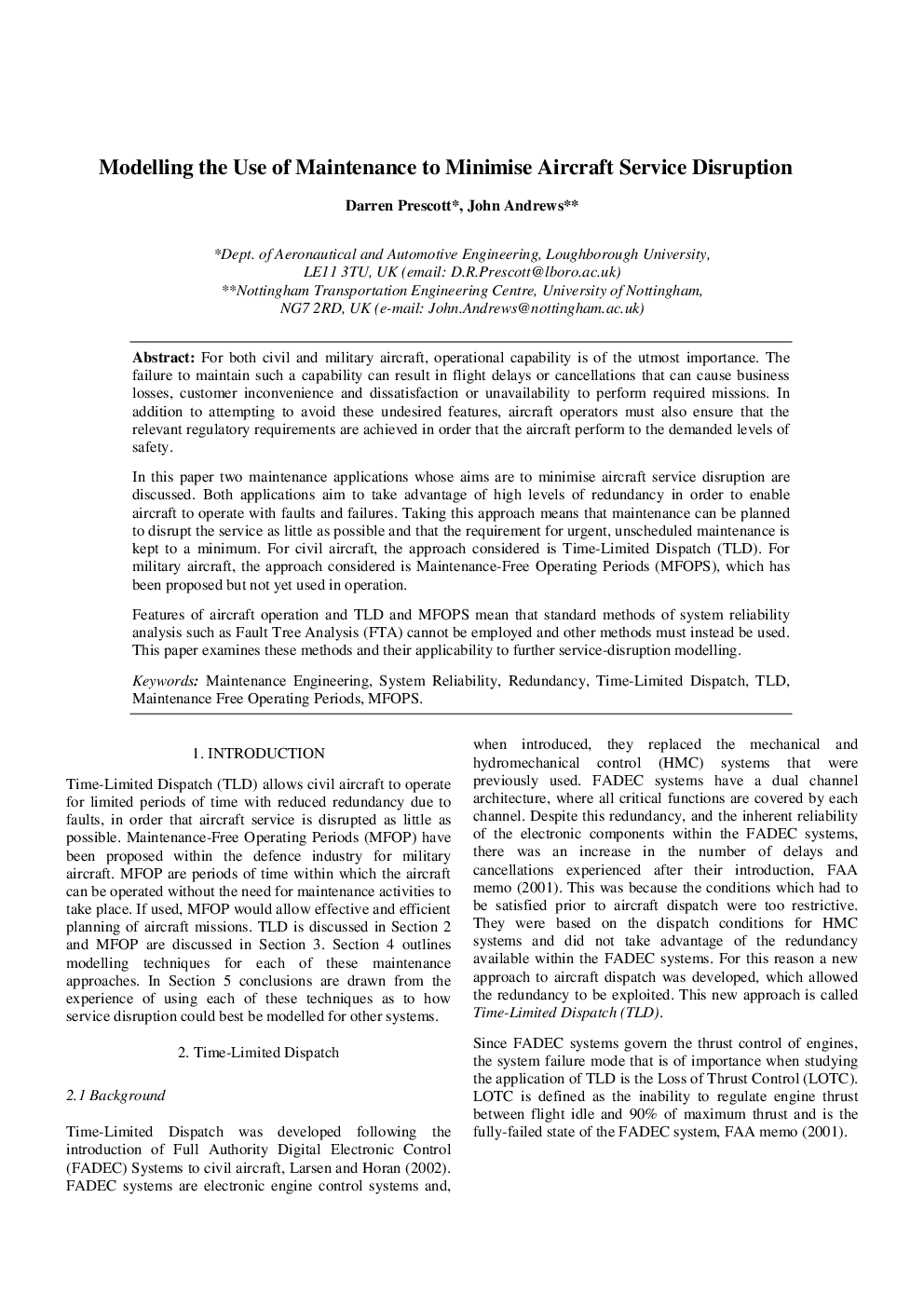| Article ID | Journal | Published Year | Pages | File Type |
|---|---|---|---|---|
| 720356 | IFAC Proceedings Volumes | 2010 | 6 Pages |
For both civil and military aircraft, operational capability is of the utmost importance. The failure to maintain such a capability can result in flight delays or cancellations that can cause business losses, customer inconvenience and dissatisfaction or unavailability to perform required missions. In addition to attempting to avoid these undesired features, aircraft operators must also ensure that the relevant regulatory requirements are achieved in order that the aircraft perform to the demanded levels of safety.In this paper two maintenance applications whose aims are to minimise aircraft service disruption are discussed. Both applications aim to take advantage of high levels of redundancy in order to enable aircraft to operate with faults and failures. Taking this approach means that maintenance can be planned to disrupt the service as little as possible and that the requirement for urgent, unscheduled maintenance is kept to a minimum. For civil aircraft, the approach considered is Time-Limited Dispatch (TLD). For military aircraft, the approach considered is Maintenance-Free Operating Periods (MFOPS), which has been proposed but not yet used in operation.Features of aircraft operation and TLD and MFOPS mean that standard methods of system reliability analysis such as Fault Tree Analysis (FTA) cannot be employed and other methods must instead be used. This paper examines these methods and their applicability to further service-disruption modelling.
